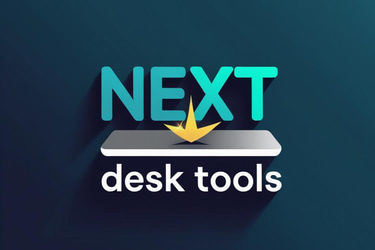Confessions of a Quiet AI User: 7 Normal Reasons People Don't Tell Their Boss
Many employees already use AI in secret—drafting emails, reports, and presentations—yet fear judgment, unclear rules, or job security risks keep them silent. This post uncovers 7 reasons why and what leaders should do about it.
9/4/20254 min read


The Silent AI Revolution Happening Right Under Your Nose
Here's a truth most managers don't know: your employees are already using AI. They're writing emails with ChatGPT, creating presentations with Copilot, and brainstorming ideas with Claude. But they're not telling you about it.
This isn't rebellion or deception—it's survival. In today's pressure-cooker work environment, AI has become the secret lifeline that helps people cope with impossible workloads, tight deadlines, and the constant pressure to do more with less.
I've talked to dozens of professionals who use AI daily but keep it quiet at work. Their reasons aren't what you might expect. They're not trying to be sneaky—they're trying to stay afloat in a system that demands superhuman productivity while offering very human support.
1. Fear of Judgment or Rejection
"What if my boss thinks I'm cheating?"
This fear runs deep. Despite AI being a legitimate tool, many employees worry their managers will see it as taking shortcuts or being lazy. The irony? They're often producing higher-quality work faster than ever before.
Sarah, a marketing manager, puts it perfectly: "I use AI to brainstorm campaign ideas and polish my copy. The final work is still mine—AI just helps me think through it better. But I'm terrified my boss will think I'm not really doing my job."
The work quality hasn't dropped—if anything, it's improved. But the fear of being seen as less capable or professional keeps people quiet.
2. Unclear Rules or Policies
Most companies are flying blind when it comes to AI policies. Without clear guidelines, employees face an impossible choice: ask for permission and risk being told no, or quietly use tools that help them succeed.
"Our company handbook was written in 2018," one software developer told me. "There's nothing about AI, machine learning tools, or even cloud-based code assistants. So I use GitHub Copilot to write better code faster, but I don't advertise it."
When the rules are unclear, silence feels safer than accidentally crossing a line that hasn't been drawn yet.
3. Pressure to Perform Fast (And the Need to Cope)
Here's the reality many managers miss: employees aren't using AI to be lazy—they're using it to survive crushing workloads.
"I have eight reports due every week, plus three client calls, plus strategy planning," explains a project manager. "AI helps me draft the reports so I can focus on the strategy work that actually needs my brain. Without it, I'd be working 70-hour weeks just to keep up."
This isn't about cutting corners. It's about finding a way to manage impossible expectations while maintaining some semblance of work-life balance. AI becomes the pressure release valve that prevents complete burnout.
The hidden truth: Many employees desperately need something to help them cope with modern work demands. AI fills that gap, but admitting they need help feels like admitting weakness.
4. Fear of Job Security
The "replacement anxiety" is real and understandable. If AI can help with their tasks, what happens when the boss realizes that?
"I use AI to create first drafts of my quarterly reports," admits a business analyst. "But I'm terrified that if I tell my manager, she'll think 'Why do I need this person if AI can write reports?'"
The fear isn't entirely irrational. But it misses the point—AI doesn't replace human judgment, creativity, and relationship-building. It just handles the routine stuff so humans can focus on higher-value work.
5. Protecting Their "Edge"
Some employees view AI as their secret productivity hack. Why would they share something that makes them look exceptionally efficient?
"I can turn around client proposals in half the time it used to take me," says a consultant. "My boss thinks I'm incredibly fast and thorough. If everyone starts using AI, I lose that advantage."
This competitive mindset makes sense in results-driven cultures, but it also prevents teams from collectively benefiting from productivity improvements.
6. Concerns About Data Privacy
Even employees who want to be transparent worry about the implications of putting company information into AI tools.
"I'd love to tell my boss that AI helps me analyze customer feedback faster," explains a customer success manager. "But I'm copying customer comments into ChatGPT. Is that allowed? Is it safe? Nobody's given me guidance, so I keep quiet."
These are legitimate concerns that companies need to address with clear policies and approved tools.
7. Perfectionism and Image Management
Many professionals have built their identity around being self-sufficient and capable. Admitting AI assistance can feel like tarnishing that image.
"I pride myself on my writing skills," shares a content manager. "Using AI to help structure my articles feels like admitting I'm not as good as I thought. Even though the final pieces are better, it bruises my ego to acknowledge I had help."
This perfectionist mindset runs counter to the collaborative nature of modern work, but it's deeply human and understandable.
The Pressure Behind the Silence
What ties all these reasons together is the immense pressure employees feel to perform at superhuman levels. Workloads have increased, deadlines have shortened, and expectations have skyrocketed—but support systems haven't kept pace.
AI becomes the invisible assistant that helps people meet these impossible standards. It's not about being lazy or deceptive—it's about finding a way to deliver excellent work without sacrificing their mental health or personal lives.
What This Means for Leaders
If you're a manager reading this, here's what you need to know: your team is probably already using AI, and that's not a bad thing. The question isn't whether they should be using it—it's how you can create an environment where they feel safe being honest about it.
Consider developing clear AI policies, providing approved tools, and framing AI as a productivity enhancement rather than a crutch. Your employees are adapting to modern work demands the best way they know how. Help them do it openly and effectively.
The Bottom Line
The quiet AI revolution isn't about deception—it's about adaptation. In a world that demands more output with fewer resources, AI has become the silent partner helping people stay sane and productive.
Maybe it's time we started talking about it openly. Want practical ways to bring AI into your team safely and effectively? Download our free AI Integration Strategy and explore real-world use cases in my ebook, AI Basics for Everyday Work.
(Note: Written with a little AI help—and plenty of human judgment.)
